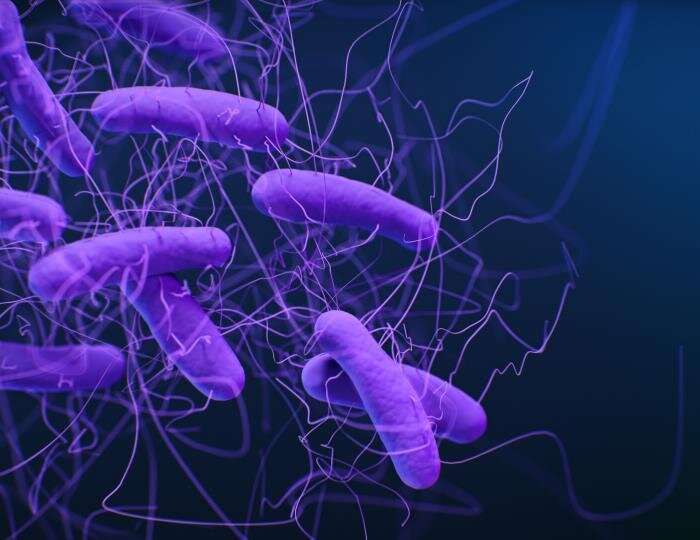Researchers confirm high toxin levels linked to more severe C. difficile infection

Estimated to cause almost half a million infections per year, the bacterium Clostridioides difficile, also known as C. difficile or "C. diff," can cause diarrhea and inflammation of the large intestine. Most often affecting patients who are older and/or have weakened immune systems, C. difficile infections are especially common among hospitalized patients and in patients who have recently completed a course of antibiotics. While several tests can detect the presence of C. difficile, healthy people can harbor the bacterium without becoming ill. A quantitative relationship between C. difficile and disease severity had not been clearly established.
In a new publication appearing in the journal Clinical Infectious Diseases, researcher-physicians at Beth Israel Deaconess Medical Center (BIDMC) used a novel, highly-sensitive test to measure the amount of toxin produced by C. difficile in the stool of patients with suspected infections. The team followed the patients—who were hospitalized at BIDMC and at Texas Medical Center in Houston—for 40 days after the onset of infection. The team found that the concentration of C. difficile toxins in the stool was linked to how sick patients were at the time of diagnosis and was also associated with adverse outcomes, including the risk of the infection returning after treatment.
"Disease-causing C. difficile strains produce toxins that directly damage the tissues of the large intestine, leading to the symptoms of C. difficile infection, including severe diarrhea, nausea and stomach pain," said first author Carolyn D. Alonso, MD, director of the Transplant and Immunocompromised Host Program in the Division of Infectious Diseases at BIDMC and assistant professor of medicine at Harvard Medical School (HMS). "While prior studies had shown a possible association between stool toxin levels and clinical outcomes, this study was the first of its kind to convincingly demonstrate that the concentration of C. difficile toxins influences disease severity."
"This research lays the foundation for developing a highly accurate, single-step test to better diagnose C. difficile infection and predict clinical outcomes," said senior/corresponding author Nira R. Pollock, MD, Ph.D., also of the Division of Infectious Diseases at BIDMC, associate medical director of the Infectious Diseases Diagnostic Laboratory at Boston Children's Hospital, and associate professor of pathology and medicine at HMS. "The next steps for the research will combine this ultrasensitive and quantitative stool toxin test with other biomarkers to try to create a test that can determine who really has C. difficile infection and who is most likely to have worse clinical outcomes."
"It is well-recognized that C. difficile-associated diarrhea and colitis are caused by toxins A and B," said co-lead author Ciarán P Kelly, MD, medical director of the Celiac Center at BIDMC and professor of medicine at HMS. "However, this study clearly shows that toxin quantities are associated with baseline disease severity as well as negative outcomes such as need for admission to the ICU and/or death. Hence, measuring toxin concentrations in stool can help physicians to predict the likely course of the illness and plan their management steps accordingly."
More information: Carolyn D Alonso et al, Ultrasensitive and quantitative toxin measurement correlates with baseline severity, severe outcomes, and recurrence among hospitalized patients with Clostridioides difficile infection, Clinical Infectious Diseases (2021). DOI: 10.1093/cid/ciab826


















